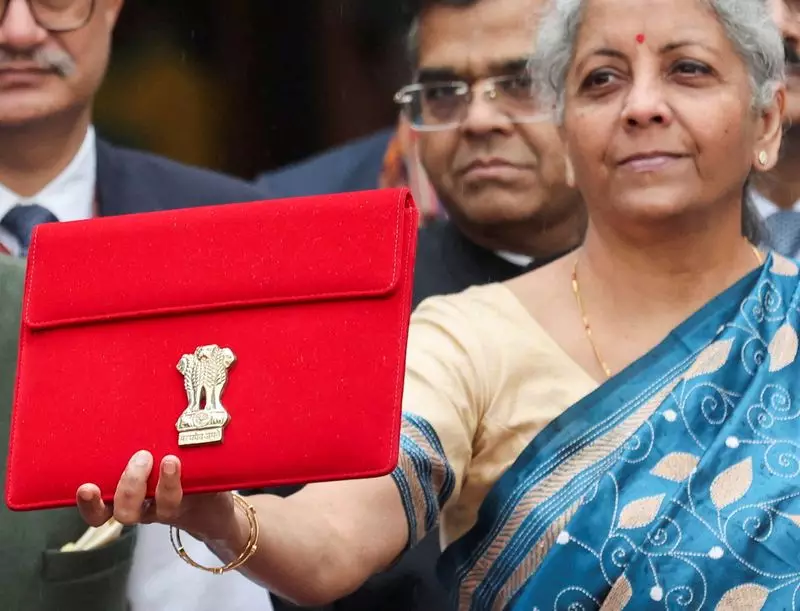In a recent announcement, Finance Minister Nirmala Sitharaman revealed that the Indian government would be reducing its planned gross market borrowing by 120 billion rupees for the financial year ending March 2025. This decision comes as a modification from the earlier 14.13 trillion rupees announced in the interim budget. The aim is to borrow a gross of 14.01 trillion rupees, with the additional goal of decreasing the fiscal deficit to 4.9% of GDP compared to the previous 5.1%.
Government borrowings have a significant impact on bond yields, which have seen a decrease since the beginning of the financial year. Given the inclusion of local currency bonds in JPMorgan’s emerging market debt index, the focus on India’s government finances has intensified. Foreign investors bought $8 billion worth of bonds in 2024, showcasing a keen interest in the country’s economic outlook and fiscal discipline.
Following the announcement, government bond yields experienced a brief decline, with the benchmark 10-year bond yield reaching its lowest point since April 2022 at 6.9260%. However, this downward trend was short-lived as many market participants expected a larger cut in borrowing. Consequently, yields rebounded, closing at 6.9723%. The market reaction highlighted the delicate balance between investor expectations and government decisions.
Finance Minister Nirmala Sitharaman expressed the government’s commitment to reducing the fiscal deficit below 4.5% in the upcoming year and maintaining a declining trajectory for central government debt as a percentage of GDP from 2026-27 onwards. Industry experts, such as VRC Reddy from Karur Vysya Bank, anticipate a positive outlook for bond yields, expecting a decrease to 6.90% with a ceiling of 7.00%. Conversely, Vijay Sharma from PNB Gilts foresees potential selling pressure on long-term yields while short-term yields may ease, ultimately leading to a benchmark bond yield peak at 7.02%.
The lowered gross market borrowing by the Indian government has elicited diverse responses from the market, underscoring the complexities of fiscal management and investor expectations. As the fiscal deficit and central government debt remain focal points, the trajectory of bond yields and government securities will continue to be closely monitored by investors and analysts alike.

